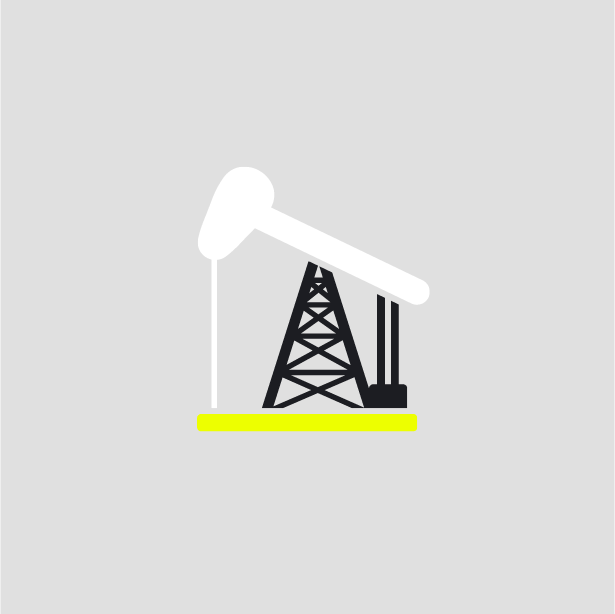-
What happened?
A worker sustained an eye injury while exposing buried cables.
The worker let go of the wand when he fell into the excavated area when it sloughed in (1.5m). The fall caused high-pressure water to spray the worker across his face and eye area, causing permanent damage to one eye.
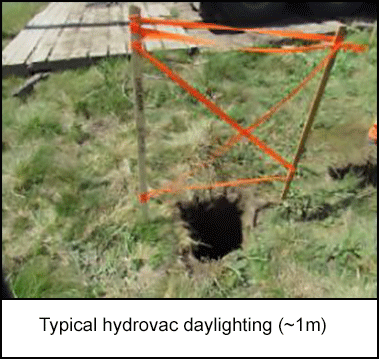
-
Why did it happen?
Permit to work did not outline the entire scope, identify the hazards and company supervision requirements of the operation.
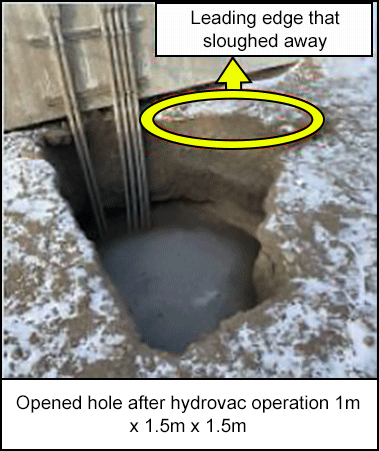
-
What did they learn?
- Ensure to wear your prescribed personal protective equipment (PPE).
- Ensure to operate within established operating limits.
- Provide clarity on hydrovac excavations, associated risks and mitigation with all personnel.
- Review the risk-based expectation for supervision and accountability requirements.
- Enhance contractor safety management program and sub-contractor management.
- Encourage workers to raise concerns about hazards and re-assess if conditions change.
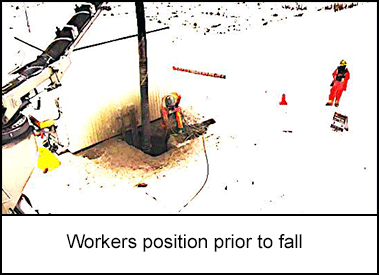
-
Ask yourself or your crew
How can we prevent something like this from happening here?
What are other risks are associated with forklift operations? How can you mitigate those risks at your work site?
What safety recommendations should be included in the operational instructions?
How can we, as a company, implement a practical training plan that focuses on the job position, and make sure pedestrians are safer from forklifts in the future?
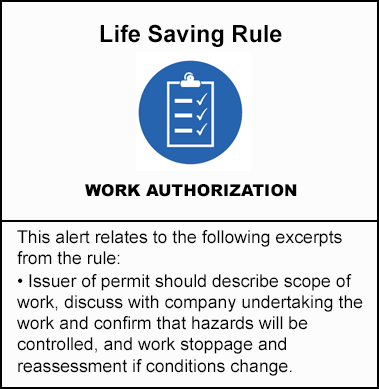
Add to homescreen
Content name
Select existing category:
Content name
New collection
Edit collection
What happened?
A worker sustained an eye injury while exposing buried cables.
The worker let go of the wand when he fell into the excavated area when it sloughed in (1.5m). The fall caused high-pressure water to spray the worker across his face and eye area, causing permanent damage to one eye.

Why did it happen?
Permit to work did not outline the entire scope, identify the hazards and company supervision requirements of the operation.

What did they learn?
- Ensure to wear your prescribed personal protective equipment (PPE).
- Ensure to operate within established operating limits.
- Provide clarity on hydrovac excavations, associated risks and mitigation with all personnel.
- Review the risk-based expectation for supervision and accountability requirements.
- Enhance contractor safety management program and sub-contractor management.
- Encourage workers to raise concerns about hazards and re-assess if conditions change.

Ask yourself or your crew
How can we prevent something like this from happening here?
What are other risks are associated with forklift operations? How can you mitigate those risks at your work site?
What safety recommendations should be included in the operational instructions?
How can we, as a company, implement a practical training plan that focuses on the job position, and make sure pedestrians are safer from forklifts in the future?

A worker sustained an eye injury while exposing buried cables. The worker let go of the wand when he fell into the excavated area when it sloughed in. The fall caused high-pressure water to spray the worker across his face and eye area, causing permanent damage to one eye.
Original material courtesy of Energy Safety Canada

Other resources:
Learn more about this Life Saving Rule | Work Authorization














